PlayerUnknown's Battlegrounds and poker have a lot in common
The unexpected parallels between tournament Texas Hold 'Em and the PC's multiplayer shooter craze.
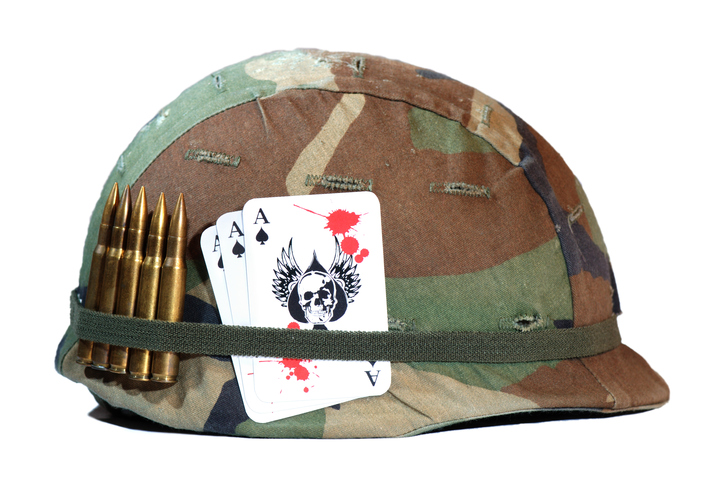
I’m one of the three-million-plus PC gamers who have jumped into the 100-player Battle Royale-style deathmatches of PlayerUnknown’s Battlegrounds. It’s captivated me totally, and that initially came as a surprise until I started drawing comparisons between it and another game that I truly love: tournament poker. It turns out that the two share a lot of the same hooks.
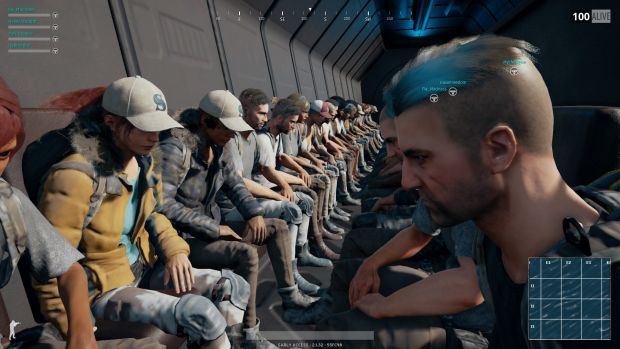
A field of many, but there can be only one
Poker tournaments are often characterized by large entry fields, but typically only around 10 percent of the entry field will get paid. The rewards also escalate non-linearly. Even in a tournament of 200 players, the payouts between 5th place and 3rd place will differ dramatically. The most skilled pros will not cash in most tournaments. In fact, the emphasis is so strong on winning that most pros would rather lose while pursuing a strategy that could result in a win than make a little money with a strategy that isn’t likely to give them a shot at the final table.
PUBG has the same dynamic. Of course in any multiplayer game you want to win, but most of the time you are competing with a handful of other players or teams. Battlefield 1 accommodates 64 players, but you're still winning or losing as a team consisting of half of that large field. PUBG is all about the elusive Chicken Dinner (1st place). Top players on the solo leaderboard might have a win rate of 10 or 20 percent, far different from a game of Overwatch, where you essentially have a 50/50 chance every single game. Starting out with long odds in PUBG makes it all the sweeter when you do win. It’s a powerful motivator.
Skill and luck
Poker obviously features a large degree of luck. However, over the long view of many hands, tables, and situations, differences in skill are crucially important and assert themselves. Pros survive and support themselves with their winnings, whereas less skilled players don’t. However, even the highest skill levels cannot prevent the hated “bad beat.” You can make all the right decisions but still lose. While maddening, it’s part of the game.
Sometimes it’s worth taking the gamble in order to double-up your chips.
PUBG demands tons of skill, both in terms of mechanical execution (shooting) and also decision making and tactical awareness. However, luck is not inconsequential. No matter how skilled you are, there is always a chance that you will draw poorly on loot, open the match with an awkward plane trajectory, find a car with no fuel, or get engaged from the worst possible angle at the worst possible time. Sometimes you're in the 15x scope of some jerk with an AWM and there’s nothing you could’ve done. That goes both ways, of course—loot quality varies even in known hotspots. If you manage to get your favorite weapon with your favorite scope and attachments early on, it’s a godsend.
Circle placement is another element of luck. In a game yesterday, three of our squad died early on. The fourth member camped in a house and watched as every successive circle remained concentric on her. She didn’t have to move until the very last circle, which was a mere five meters away. Sometimes you get good cards!
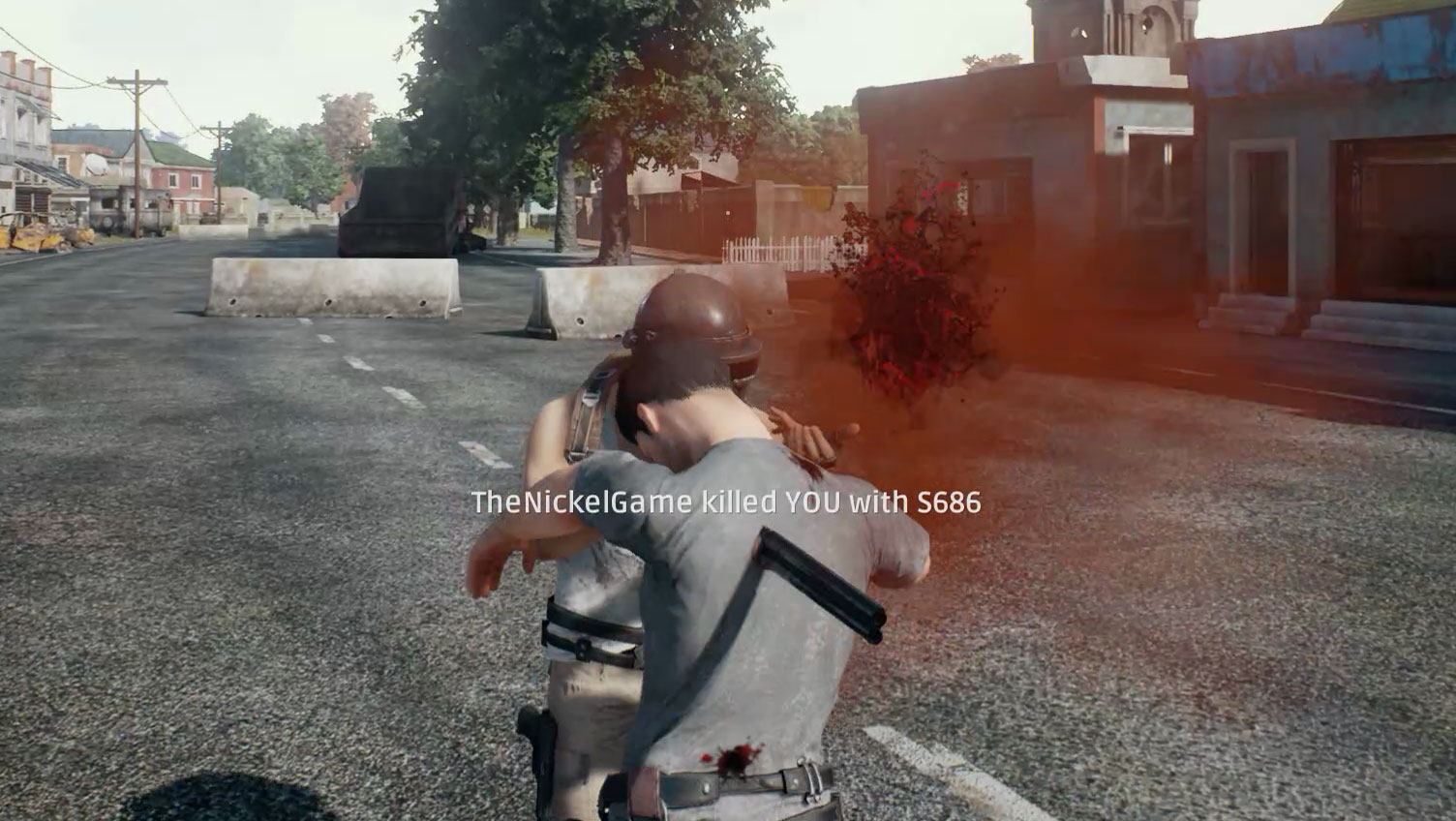
Deconstructing losses
One of the most important traits of great poker players is what they do after the game. Most have terrific hand recall (memory), and can step back through played hands and identify where they made a mistake. This becomes fuel for correcting mistakes in the future when they find themselves in similar situations.
Keep up to date with the most important stories and the best deals, as picked by the PC Gamer team.
I find myself constantly doing this with PUBG. Almost every time I die, I can think of something I did wrong. I didn’t take proper cover; I left my cover too soon; I reloaded at the wrong time; I didn’t lead the target enough; I lead the target too much; I disengaged too quickly; I didn’t pursue fast enough; I forgot what firing mode my weapon was on; I left myself in position where their third-person camera could spot me around the corner; I forgot to keep tabs on the gas; I switched gun views at the wrong time; I forgot to stay moving; I moved too predictably; I got distracted by loot… the list goes on and on.
Sure, sometimes it is the proverbial bad beat with no real insight into any way I could’ve prevented it, but I’d estimate at least 90 percent of the time I can trace a death back to something I did wrong that may have been the difference in the outcome. Being able to diagnose those things makes it compelling to keep playing, because each match becomes the total of every match I’ve experienced before that.
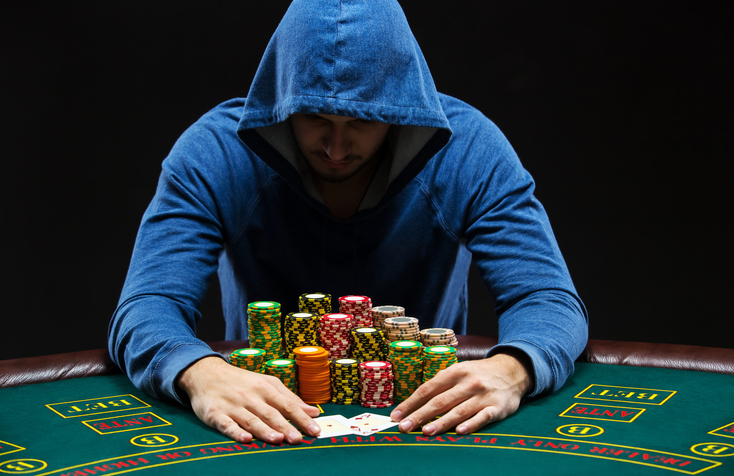
Escalating blinds (loot) and being left behind
Tournament poker is structured around increasing blinds (mandatory bets) that encourage action and ultimately force a timely resolution. Keeping up with the blinds is crucially important. While you can sit passively by and avoid confrontation, eventually the blinds will be a large portion of your chip stack and you’ll be bled out or forced to wager it all.
PUBG obtains the same result through the use of the poison gas, which of course restricts the play area in narrowing circles.
To survive in a poker tournament, you must find a way to build your chip stack while the blinds escalate. In PUBG you also need to keep pace with not only the ever-shrinking time and space, but the rising tiers of equipment.
As players are removed from the game, survivors inherit their resources.
While it is possible to win with terrible equipment, you face a massive disadvantage if you enter the final showdown area without decent armor and a good weapon. A suppressor and a nice scope are crucial assets, as are health items. The poker counterpart to having crappy equipment at the end would be a tiny stack that you’ve managed to surf the blinds on. Sure, you might double up a bunch of times and beat the chip leader, but it’s not likely to happen no matter what your skill level is. Depending on luck is a last-resort strategy.
This need to acquire good gear discourages a purely passive and stationary strategy. Even if you want to avoid contact with other players (which is generally quite wise since the economy is currently meaningless and kills by themselves aren’t important for anything other than stats and bragging rights), you’ll want to roam around some to keep finding loot. But come midgame or late game, there is quite a carrot for killing others: it’s effectively a loot multiplier.
As players are removed from the game, survivors inherit their resources. When you kill a player 15 minutes into a match, you are effectively getting 15 minutes more of loot gathering. In the parlance of a poker tournament, you are doubling up.
This leads me to another dynamic I find shared between the two games.
Long periods of inaction (followed by intense aggression)
When Doyle Brunson turned the poker world on its head a few decades ago, it was mainly because of his relentless aggression. To summarize the great Super System book he wrote and also catch you up to modern poker: aggressiveness is the name of the game today. This should not be confused, though, with impatience or carelessness. To survive in tournament poker, you simply cannot play a majority of hands. Most of the time you will not be in a hand. You will be biding your time. But when you do engage, aggressiveness is often key. It’s called “picking your spots.”
I find PUBG to be the same. Patience is rewarded, but this shouldn’t be confused with passivity. Pacifist victories are certainly possible, but when you are forced to fight, you should do so aggressively and intensely. At least in the groups I play with, those who are the aggressors in the engagements seem to have a disproportionate survival rate. It’s counterintuitive, but storming the house seems to be more successful than defending it. While storming, you are dictating the flow, and can use any number of tactics to your advantage such as grenades, flanking maneuvers, and feints. Spending ammo and grenades, and making noise with vehicles all projects strength. When defending, you get bottled up and eventually have to fight in a way that the aggressors have dictated. (Note: a good ambush is excepted.)
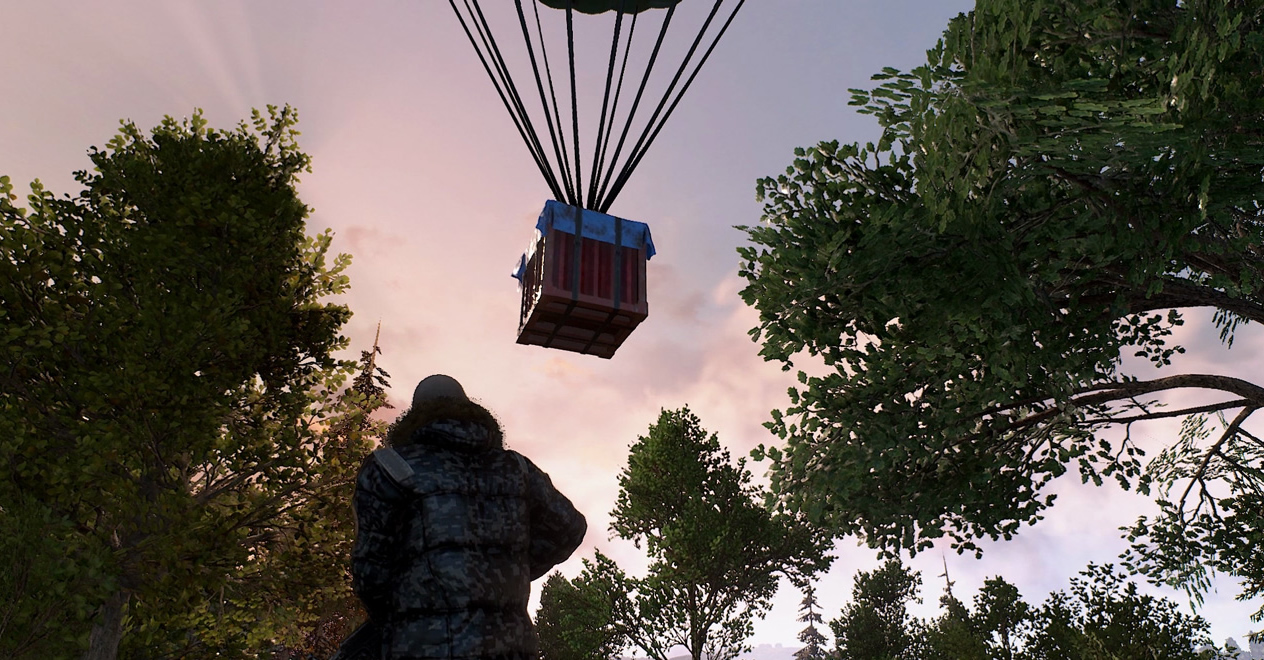
“Races” and Supply Drops
Because winning is vastly superior to placing “respectably”, sometimes a gambit with high risk/reward is warranted. In poker, this could take the form of “races” and “multiway all-ins.” Races are all-in situations where you and the opponent have similar chances of winning. This is generally a no-no in tournament poker, where losing an all-in means you are done. Sometimes, though, it’s worth taking the gamble in order to double-up your chips. Even better, if there is a multi-way all-in pot (three players or more), it might be worth the gamble even when everyone has similar hands because if you do manage to win, you’ll be set up to go deep in the tournament.
PUBG’s analogous feature are the supply drops. (Oh, those blessed red crates!) Supply drops carry the very best equipment that is otherwise unavailable on the island. There is a cost, though: they're highly visible (and audible) beacons for other players to come in search of the same loot… or to come in search of those souls that are pursuing the loot. It is not uncommon to be sniped out of your helmet or otherwise murdered when you approach a supply crate. It’s also pretty satisfying to set up ambushes for other players similarly.
Bottom line is that the crates are superbly lucrative, with danger to match. You could ignore them entirely. But a 15x scope, AWM sniper rifle, and ghillie suit sure will help your winning chances. Lately I've been making all number of foolish mistakes because I have supply drop madness. I covet the crates so much.
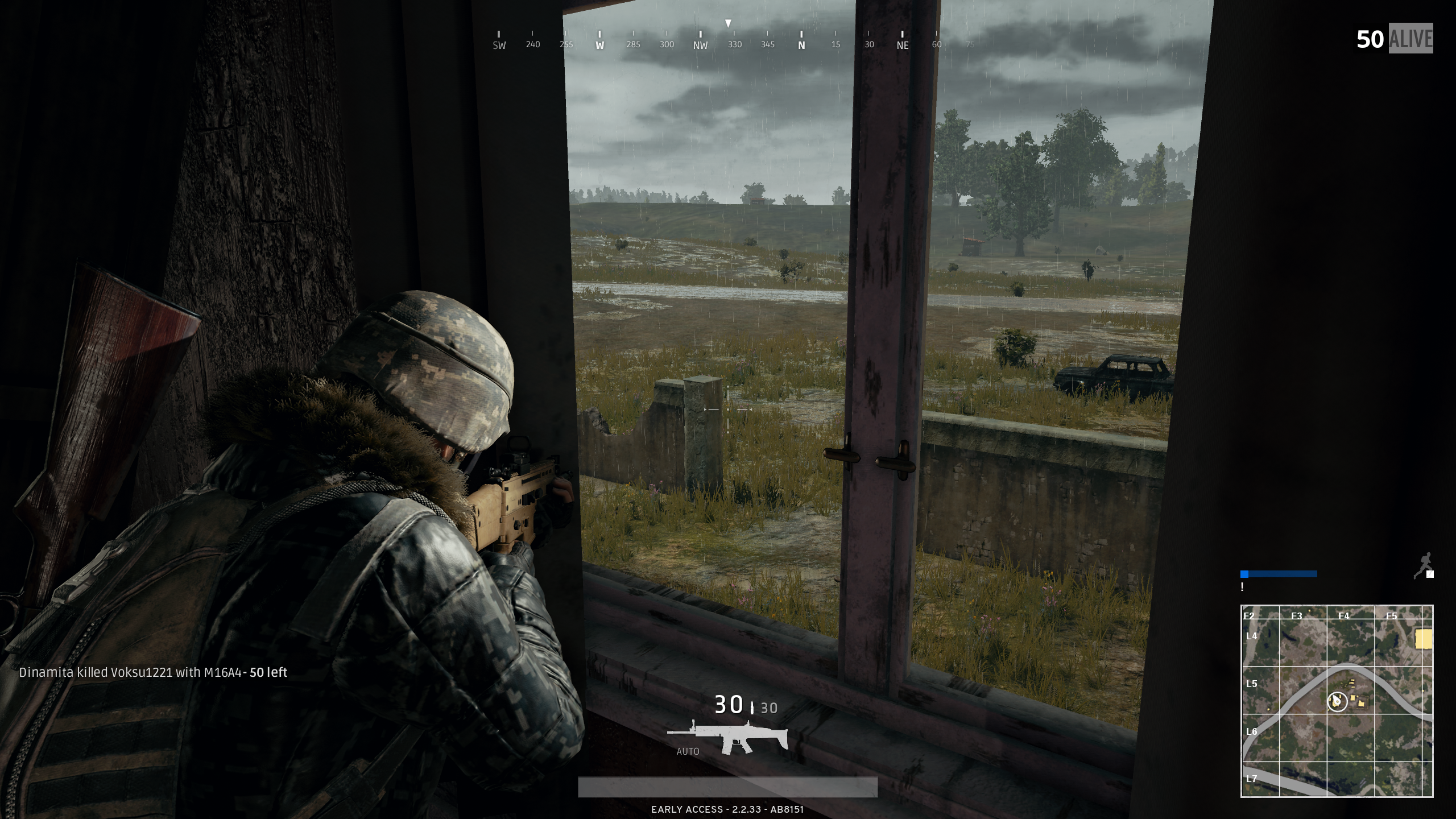
Benefits to going against the flow
A predictable poker player is a losing poker player. The basic tenets of the game can be grasped relatively quickly, so successful poker evolves from a game of pure execution to one of misdirection and multi-step thinking and trap-laying. One must know when to go against traditional wisdom and thereby maintain an element of surprise.
I think raw execution is more important relatively in PUBG than in poker, but the benefits of thinking contrary to conventional wisdom can still be useful in spots. I think this biggest opportunity for this is in initial deployment. When I watched the first official PUBG Invitational tournament I saw a great example of this, thanks to the spectator view where we could see all players’ locations at once. A curious trend exhibited itself over all three matches: nobody jumped into the Crater of Doom! Normally, this is a very popular landing spot thanks to high-grade loot, a prominent and recognizable spot on the map, and unique topology. Most matches, people are happy to jump in there because the risk/reward ratio is so enticing. You might get curb-stomped immediately, but if you manage to be the victor of that initial battle, you'll be rolling with some pretty good gear.
A curious trend exhibited itself over all three matches: nobody jumped into the Crater of Doom!
During the Invitational, though, the individual match stakes were much higher. It was all being broadcast, and you couldn’t go just start another game right away if your gambit didn’t succeed. As a result, no groups jumped there! This happened in all three matches, if I recall. Perhaps it was an opportunity for one team to go against the groupthink which was in itself was going against its own groupthink.
Similar situations present late in a poker tournament when everyone is on the “bubble” (meaning the next few people to get eliminated won’t get any prizes but if you can just last a tiny bit longer, you are guaranteed to get money). Bubble situations result in extremely cautious play—even great hands sometimes get laid down because even if someone has a 20 percent chance to draw out on you, it’s just not the time to take the risk. Clever players can sense this and go against the grain by being overly aggressive and picking up pots with low quality hands.
I guess if this stuff were easy, we’d all be eating chicken dinner all the time! Good luck getting yours.
Tyler Sigman (@tylersigman) is the co-founder and game design director for Red Hook Studios, makers of Darkest Dungeon. He’s been designing video games, board games, and card games for almost 20 years. He currently enjoys PUBG during breaks from developing Darkest Dungeon’s upcoming Crimson Court DLC. So far he’s experienced a handful of chicken dinners in PUBG, mostly thanks to good teammates who have carried him. The solo chicken dinner remains an elusive goal.

